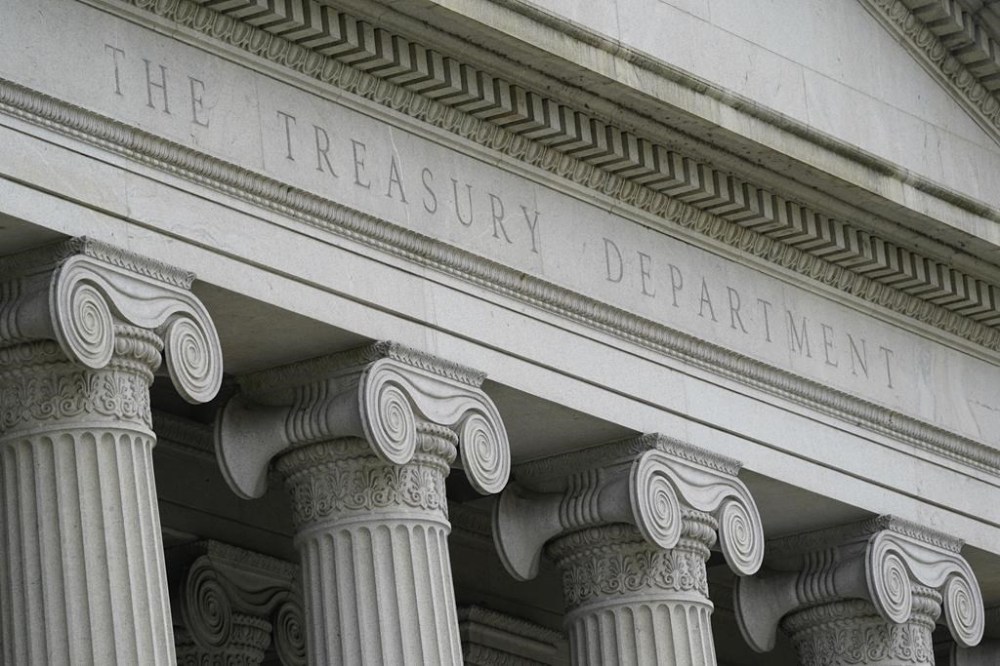US sanctions Iranian firm for helping government censor internet
Advertisement
Read this article for free:
or
Already have an account? Log in here »
To continue reading, please subscribe:
Monthly Digital Subscription
$0 for the first 4 weeks*
- Enjoy unlimited reading on winnipegfreepress.com
- Read the E-Edition, our digital replica newspaper
- Access News Break, our award-winning app
- Play interactive puzzles
*No charge for 4 weeks then price increases to the regular rate of $19.95 plus GST every four weeks. Offer available to new and qualified returning subscribers only. Cancel any time.
Monthly Digital Subscription
$4.99/week*
- Enjoy unlimited reading on winnipegfreepress.com
- Read the E-Edition, our digital replica newspaper
- Access News Break, our award-winning app
- Play interactive puzzles
*Billed as $19.95 plus GST every four weeks. Cancel any time.
To continue reading, please subscribe:
Add Free Press access to your Brandon Sun subscription for only an additional
$1 for the first 4 weeks*
*Your next subscription payment will increase by $1.00 and you will be charged $16.99 plus GST for four weeks. After four weeks, your payment will increase to $23.99 plus GST every four weeks.
Read unlimited articles for free today:
or
Already have an account? Log in here »
Hey there, time traveller!
This article was published 02/06/2023 (945 days ago), so information in it may no longer be current.
WASHINGTON (AP) — The U.S. imposed sanctions on an Iran-based technology firm on Friday for its role in facilitating the Iranian government’s censorship of the internet as anti-government protests have swept the country since September.
A firm known as Arvan Cloud, its co-founders Pouya Pirhosseinloo and Farhad Fatemi, and a United Arab Emirates-based firm were all sanctioned for helping to facilitate the Iranian government’s attempts to control and censor internet traffic.
Internet disruptions were instituted after homegrown anger over the September death of Masha Amini, an Iranian-Kurdish woman detained by the country’s morality police, escalated into large-scale protests.

U.S. Treasury’s Office of Foreign Assets Control says Arvan Cloud provided interception services for the government, allowing Iranian authorities to control and censor incoming and outgoing traffic and surveil data on the servers. The firm also blocked websites at the request of Iran’s Committee to Determine Instances of Criminal Content.
“Free and unrestricted access to information is a fundamental right of all peoples, including in Iran,” said Brian E. Nelson, Treasury’s under secretary for terrorism and financial intelligence. He said the U.S. “is committed to holding accountable those who seek to undermine freedom of expression and suppress dissent.”
Among other things, the sanctions deny the people and firms access to any property or financial assets held in the U.S. and prevent U.S. companies and citizens from doing business with them.
Tens of thousands of Iranians had been detained over the protests. While many have been pardoned or had their sentences reduced, anger still remains in the country as it struggles through the collapse of the nation’s currency and uncertainty over its ties to the wider world after the collapse of Tehran’s 2015 nuclear deal with world powers.
And Iran’s export of attack drones to Russian forces fighting in Ukraine has increased tensions.

